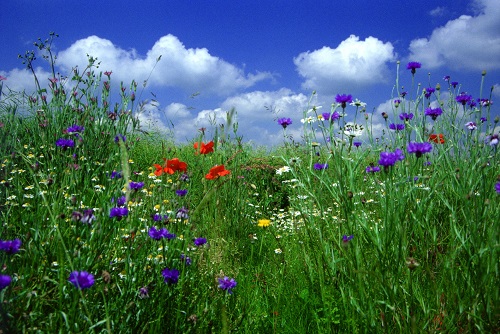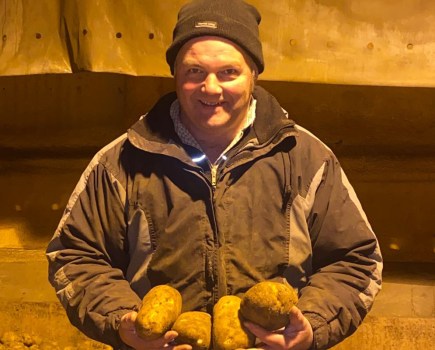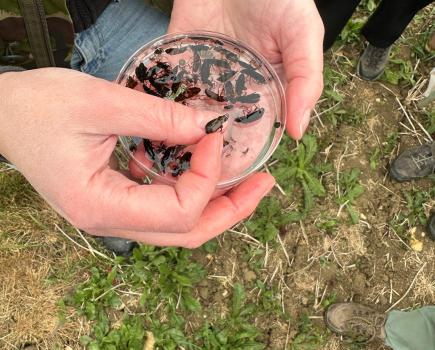Like most of us I’m quite partial to the odd tipple. Living in the Shires and a county which is at the heart of apple growing, it would seem  utterly wrong not to partake in the local brew – after all not much beats a pint of Herefordshire cider.
utterly wrong not to partake in the local brew – after all not much beats a pint of Herefordshire cider.
But for some unknown reason this autumn I decided to have a dry September and although this foray in to temperance is likely to be a temporary thing, it’s had a very unexpected side-effect. It’s given me an entirely new insight into why reformed smokers become the most zealous anti-smokers, how vegans get so angry with meat eaters and the single-mindedness of some of the apostles of no-till. I’ve suddenly become a born-again teetotaller.
It’s always confused me why it seems that moving away from the middle ground makes one far less tolerant of those who continue to occupy it. Yet my newly acquired smugness that my liver is in fine fettle has definitely given me an empathy with the other zealots in the world. Presumably this is how some of the no-tillers feel about their soils hence their complete incomprehension that some growers just don’t seem to get it and remain rooted in their deep cultivation regimes.
So it was a happy coincidence that the new Agriculture Bill was introduced into the Commons at the exact same time as I was about a fortnight into being ‘on the wagon’. Turning the pages of Gove’s tome, they seemed to set out a vision for UK agriculture with world leading standards in animal welfare and environmentally sustainable practices. Farming is all set to go green.
But something was bothering me. Within this revolutionary new Bill there was absolutely no mention of producing food. Like many on the road to Damascus my new patterns of thinking weren’t yet firmly entrenched enough to not question why decoupling farm support from production should mean removing any link between farming and food. After all, isn’t the food we eat and public health inextricably linked to how we grow it?

Although the agricultural landscape is poised to change, what those changes may be isn’t yet clear.
It seems that Gove’s vision isn’t about farming, it’s mostly about managing the land. The very laudable aims of reducing soil erosion and the emphasis on cleaner water and air are very welcome and are goals the industry is already working towards. But producing food is also what farming is all about and the lack of recognition of this fact within the proposed legislation is alarming to say the least. For instance, it seems odd to aspire to adopting even higher standards for animal welfare, and we all know we’re head and shoulders above most other EU countries on this front, while in the same breath paving the way for cheap food imports, probably from global sources outside of the EU where standards of production are also lower.
With little meat on the bones it’s hard to truly judge the contents of the Bill. Precisely what the proposed ‘environmental land management’ system will offer is a big unknown and it’s hard to imagine the bureaucracy involved will become simpler in a scheme that promises to be tailor-made, flexible and adaptable. But what is made very clear within the Bill is the intention to cease all direct payments by 2028, with the largest farms (those currently receiving £150K or more) taking a fairly hefty hit (25%) right from the get-go.
So with the only certainty a potentially huge stepdown in some farm incomes due to happen next year, it’s probably a good time to prepare by getting to grips with the current costs of production. Benchmarking isn’t anything new – the management bible that is Prof John Nix’s pocket book has been around for decades, and digital technology has made the process of comparing performance and costs much more accessible. Yet according to the AHDB only about 1.5% of farmers are using their system, so in all likelihood a large percentage of growers are still to delve into the nitty gritty of their businesses.
Within the next few months no doubt the plans for environmental land management and exactly what this entails will become a lot clearer. In the meantime, to demonstrate support of Herefordshire apple producers I think perhaps just one wouldn’t hurt.




